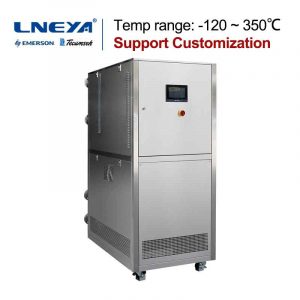chiller kw
Understanding Chiller kW
The “kW” in chiller kW indicates the cooling capacity of the chiller system, measured in kilowatts. This is a crucial specification as it directly affects the chiller’s ability to meet the cooling demands of a particular application. Chiller capacities can vary widely, from small units suitable for office buildings to large industrial chillers that can handle the cooling needs of manufacturing plants or data centers.

Types of Chillers and Their Capacities
Chillers come in various types, each with different capacity ranges:
Air-Cooled Chillers: These are available in a wide range of capacities, typically from 10 kW to 1000 kW or more.
Water-Cooled Chillers: These can have capacities ranging from 50 kW to several megawatts, making them suitable for larger applications.
Screw Chillers: Known for their efficiency and reliability, screw chillers can have capacities from 100 kW to over 1000 kW.
Scroll Chillers: These are generally used for smaller applications, with capacities usually under 100 kW.
Efficiency Metrics
The efficiency of chillers is often expressed in terms of:

Energy Efficiency Ratio (EER): This is the ratio of the cooling capacity in BTUs per hour to the power input in watts. A higher EER indicates greater efficiency.
Coefficient of Performance (COP): This is the ratio of the useful heat output (in BTUs) to the work input (in watts). Chillers with higher COP values are more energy-efficient.
Selecting a Chiller
When selecting a chiller, consider the following factors:
Cooling Load: The specific cooling requirements of the application.
Energy Efficiency: Look for chillers with high EER and COP ratings.
Size and Space: Ensure the chiller will fit within the available space.
Cost: Consider the initial cost as well as the ongoing operational costs.
Supplier Reputation: Choose a reputable supplier with a history of reliable products and good after-sales service.
Technological Advancements

The chiller industry is continuously evolving with advancements in technology. Modern chillers are increasingly equipped with smart controls for improved efficiency and are designed with energy-saving features. Innovations such as variable-speed drives, improved heat exchangers, and the use of environmentally friendly refrigerants are becoming more common.
Energy Efficiency and Sustainability
As environmental concerns grow, the focus on energy efficiency in chiller systems is more important than ever. Chillers with high efficiency can significantly reduce energy consumption and lower operating costs. Additionally, the use of renewable energy sources and the adoption of chillers with natural refrigerants contribute to the sustainability goals of many organizations.
Conclusion
Chiller kW is a fundamental specification that must be carefully considered when selecting a chiller system. With the ongoing advancements in technology, modern chillers offer improved efficiency and sustainability. It’s essential to choose a chiller that meets the specific cooling needs of an application while also considering energy efficiency and environmental impact.
Related recommendations
What Equipment can the Dynamic Temperature Control System be Used for?
1276What Equipment can the Dynamic Temperature Control System be Used for? Dynamic temperature control systems are widely used in petroleum, chemical, pharmaceutical and other industries. Our co...
View detailshot and cold plate
511Hot and Cold Plate: A Comprehensive Guide Introduction A hot and cold plate is an essential tool in laboratories and industrial settings, offering precise temperature control for heating or ...
View detailsoil cooler industrial
443Industrial Oil Coolers: Efficient Thermal Management for Industrial Applications Industrial oil coolers play a critical role in the efficient operation of machinery across various industries. T...
View detailsWhat should be paid attention to when selecting a refrigerated chiller?
1273What should be paid attention to when selecting a refrigerated chiller? 1、 Refrigeration capacity The refrigeration capacity of a freezer is directly related to the normal use o...
View details
 LNEYA Chiller
LNEYA Chiller







HelloPlease log in